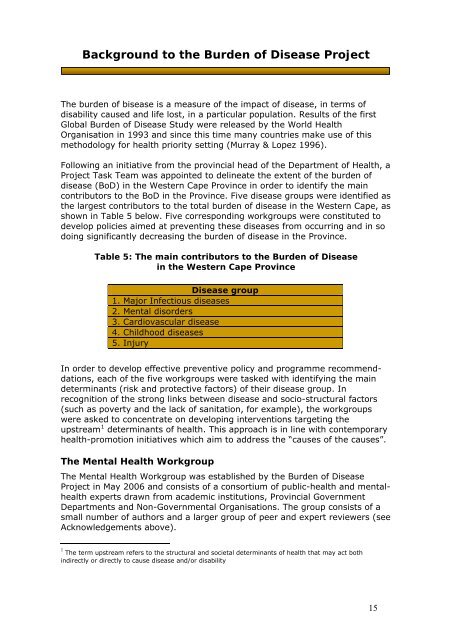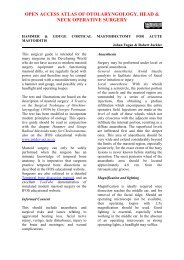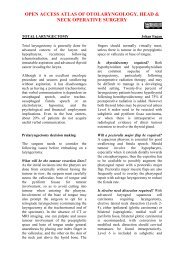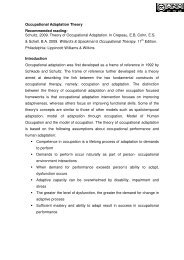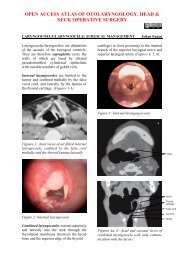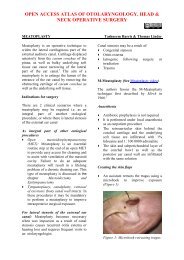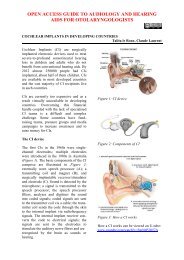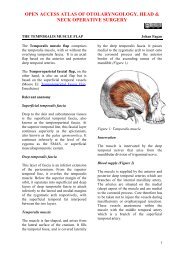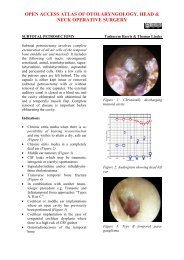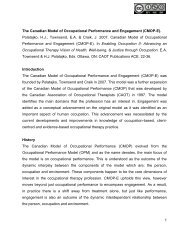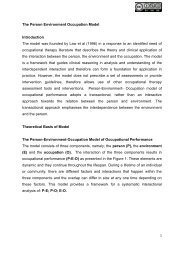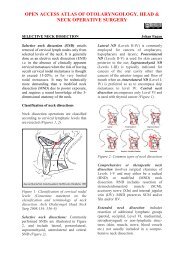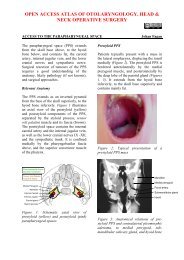(Volume 4) - Mental Health Disorders - Vula - University of Cape Town
(Volume 4) - Mental Health Disorders - Vula - University of Cape Town
(Volume 4) - Mental Health Disorders - Vula - University of Cape Town
Create successful ePaper yourself
Turn your PDF publications into a flip-book with our unique Google optimized e-Paper software.
Background to the Burden <strong>of</strong> Disease ProjectThe burden <strong>of</strong> bisease is a measure <strong>of</strong> the impact <strong>of</strong> disease, in terms <strong>of</strong>disability caused and life lost, in a particular population. Results <strong>of</strong> the firstGlobal Burden <strong>of</strong> Disease Study were released by the World <strong>Health</strong>Organisation in 1993 and since this time many countries make use <strong>of</strong> thismethodology for health priority setting (Murray & Lopez 1996).Following an initiative from the provincial head <strong>of</strong> the Department <strong>of</strong> <strong>Health</strong>, aProject Task Team was appointed to delineate the extent <strong>of</strong> the burden <strong>of</strong>disease (BoD) in the Western <strong>Cape</strong> Province in order to identify the maincontributors to the BoD in the Province. Five disease groups were identified asthe largest contributors to the total burden <strong>of</strong> disease in the Western <strong>Cape</strong>, asshown in Table 5 below. Five corresponding workgroups were constituted todevelop policies aimed at preventing these diseases from occurring and in sodoing significantly decreasing the burden <strong>of</strong> disease in the Province.Table 5: The main contributors to the Burden <strong>of</strong> Diseasein the Western <strong>Cape</strong> ProvinceDisease group1. Major Infectious diseases2. <strong>Mental</strong> disorders3. Cardiovascular disease4. Childhood diseases5. InjuryIn order to develop effective preventive policy and programme recommenddations,each <strong>of</strong> the five workgroups were tasked with identifying the maindeterminants (risk and protective factors) <strong>of</strong> their disease group. Inrecognition <strong>of</strong> the strong links between disease and socio-structural factors(such as poverty and the lack <strong>of</strong> sanitation, for example), the workgroupswere asked to concentrate on developing interventions targeting theupstream 1 determinants <strong>of</strong> health. This approach is in line with contemporaryhealth-promotion initiatives which aim to address the “causes <strong>of</strong> the causes”.The <strong>Mental</strong> <strong>Health</strong> WorkgroupThe <strong>Mental</strong> <strong>Health</strong> Workgroup was established by the Burden <strong>of</strong> DiseaseProject in May 2006 and consists <strong>of</strong> a consortium <strong>of</strong> public-health and mentalhealthexperts drawn from academic institutions, Provincial GovernmentDepartments and Non-Governmental Organisations. The group consists <strong>of</strong> asmall number <strong>of</strong> authors and a larger group <strong>of</strong> peer and expert reviewers (seeAcknowledgements above).1 The term upstream refers to the structural and societal determinants <strong>of</strong> health that may act bothindirectly or directly to cause disease and/or disability15


